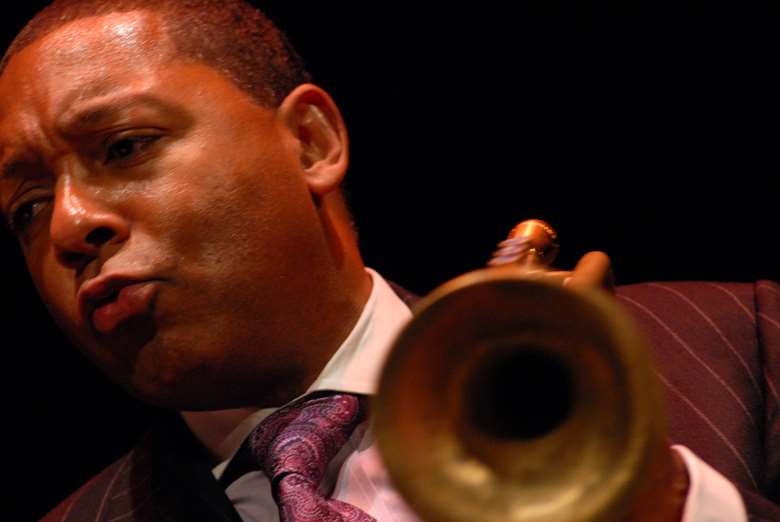Wynton Marsalis
Kevin Le Gendre
Because he was also sharply tailored and groomed Wynton Marsalis endured accusations of taking retro chic way too far, but the music he made told a story of talent intent on creating new work on the basis of what he held to be core values

Such is the magnitude of what the trumpeter has come to represent – either a valorous champion of the heritage of jazz or arch reactionary pitted against its spirit of adventure, depending on your persuasion – there is often a conspicuous absence of discussion on his achievements as a musician. What Marsalis says eclipses the way he plays.
Yet if one edits out some of the noise around his more strident condemnations of jazz-fusion or the evils of plugging in – “Look what it did to Miles Davis!” – and objectively appraises the highlights of Marsalis’ gargantuan discography then even those who have taken against him on political grounds would find it hard to dismiss his brilliance.
Although the albums he made in the early ‘80s, when, emerging from the tutelage of Art Blakey, whose Jazz Messengers he joined (before his saxophonist brother Branford) when he was 19 years old, are not without interest it is the record he made in the middle of the decade, Black Codes (From The Underground) that remains one of his major artistic statements. Featuring his peers – Branford, pianist Kenny Kirkland, drummer Jeff ‘Tain’ Watts, and a legendary elder, double bassist Ron Carter – the Grammy winning set was a dazzling example of original composing and improvising largely hewn from the bedrock of Davis’ Second Great Quintet (of which Carter was a member).
Though the mazy chord sequences and sly shifts of pulse caught the ear there was a richness in the themes, some emphatic, some wry, and real ingenuity in the solos, particularly, Wynton’s, that made the album a key entry in the canon of small group jazz – that also cemented the primacy of the acoustic sound that the trumpeter championed so passionately.
Because he was also sharply tailored and groomed Marsalis endured accusations of taking retro chic way too far but again the music he made told a story of talent intent on creating new work on the basis of what he held to be core values.
As the son of pianist Ellis Marsalis, patriarch of a historic family in New Orleans jazz, Wynton was well versed in the ways of swing and ‘the majesty of the blues’, but he was also a phenomenally gifted classical musician, whose command of baroque trumpet in particular earned him no end of plaudits. In any case Marsalis’ ability as a composer of complex, large-scale pieces would come into its own in the latter half of the ‘90s on albums such as the Pullitzer Prize winning Blood On The Fields, a startling oratorio on slavery and the black experience in America that had an Ellingtonian grandeur and sophisticated blues-based narrative.
A significant development in Marsalis career was his co-founding of the Jazz programme at New York’s prestigious Lincoln Center, and subsequent leadership of the Jazz At Lincoln Center Orchestra. This has done much to give the music a high profile performance space and extensive educational arm, which also has a close relationship with the Barbican Centre in London.
The orchestra has collaborated with international artists such as the late genius of flamenco guitar, Paco De Lucia, but as Marsalis’ role as evangelist and ambassador for the acoustic tradition becomes all the more prominent he still records small group albums that serve as a reminder of his immense talent, a key example being the thought provoking 2007 CD From The Plantation To The Penitentiary, a set graced by the presence of the very gifted vocalist Jennifer Sanon.
